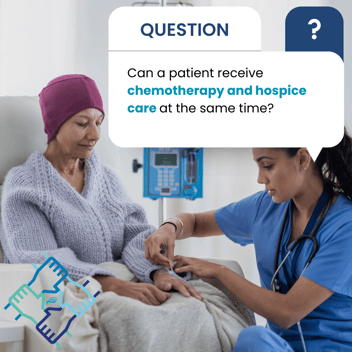Discover what the first week of hospice care services entails and how it can provide comfort and support for patients and their families.
Initial Consultation and Assessment
During the first week of hospice care services, patients and their families can expect an initial consultation and assessment. This is a crucial step in understanding the patient's medical condition, needs, and goals. The hospice care team will conduct a thorough evaluation to gather information about the patient's medical history, current symptoms, and any pain or discomfort they may be experiencing. They will also assess the patient's emotional and psychological well-being to ensure holistic care.
The initial consultation and assessment provide an opportunity for the care team to establish a rapport with the patient and their family. It allows them to address any concerns or questions and develop a personalized care plan that meets the patient's unique needs. This step sets the foundation for providing tailored and compassionate care throughout the patient's hospice journey.
Development of Care Plan
Following the initial consultation and assessment, the hospice care team will work collaboratively to develop a comprehensive care plan. This plan outlines the goals, interventions, and services that will be provided to the patient during their time on hospice care. It takes into account the patient's medical condition, symptoms, and personal preferences.
The care plan may include various components such as pain management, symptom control, emotional support, spiritual care, and assistance with activities of daily living. The interdisciplinary team, consisting of doctors, nurses, social workers, chaplains, and other healthcare professionals, will contribute their expertise to ensure a holistic approach to care.
Throughout the first week of hospice care, the care plan may be adjusted or modified based on the patient's changing needs and preferences. Regular communication between the care team and the patient's family is essential to ensure that the care plan remains responsive and effective.
Introduction to the Care Team
During the first week of hospice care services, patients and their families will be introduced to the care team. This team consists of compassionate and skilled professionals who are dedicated to providing comprehensive care and support.
The care team typically includes doctors, nurses, certified nursing assistants, social workers, chaplains, and volunteers. Each member of the team plays a vital role in ensuring the physical, emotional, and spiritual well-being of the patient.
The introduction to the care team allows the patient and their family to establish a relationship with each member, fostering trust and open communication. It provides an opportunity to discuss any concerns, ask questions, and collaborate on the patient's care plan. The care team will be available to provide guidance and support throughout the hospice journey.
Emotional Support and Counseling
Emotional support and counseling are an integral part of hospice care services. During the first week, patients and their families can expect to receive emotional support from the care team.
The emotional support may include individual counseling sessions with a social worker or chaplain, group therapy sessions, or access to support groups. These services aim to address the emotional and psychological needs of both the patient and their family members, helping them navigate the challenges and emotions that arise during this time.
The care team will provide a compassionate and non-judgmental space for patients and their families to express their feelings, fears, and concerns. They will offer guidance and coping strategies to help them navigate the emotional aspects of the hospice journey. Additionally, the care team can provide referrals to community resources and organizations that specialize in grief counseling and bereavement support.




